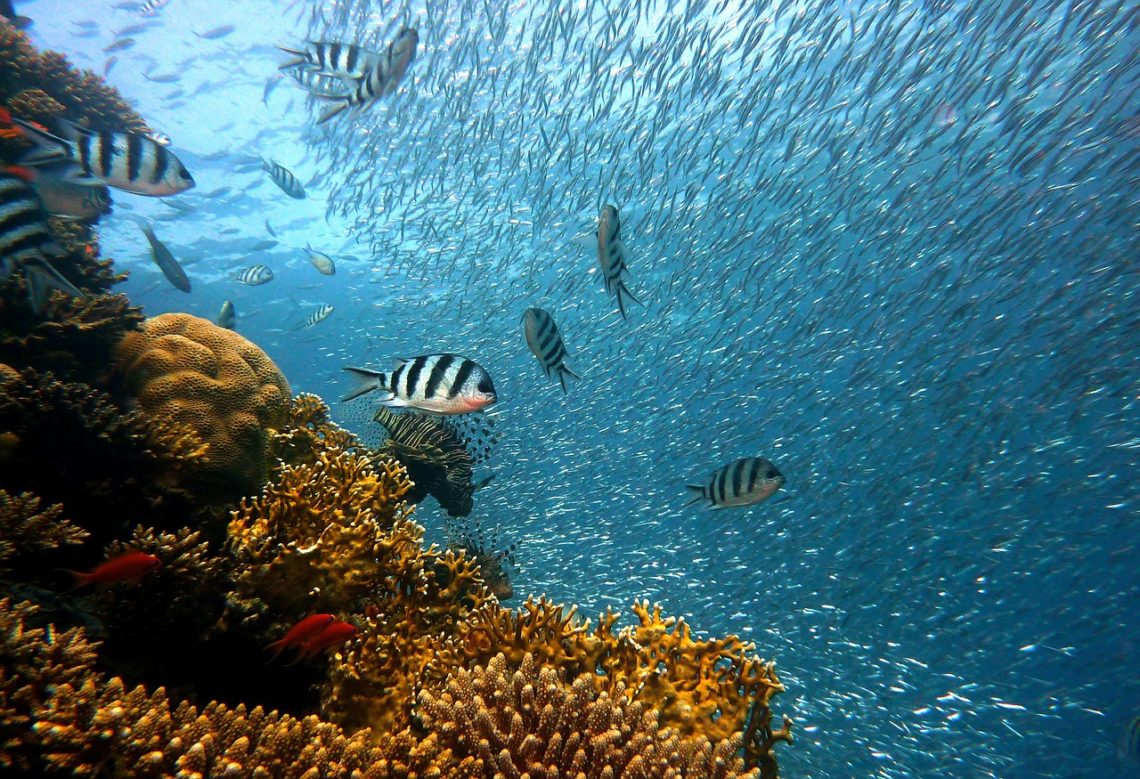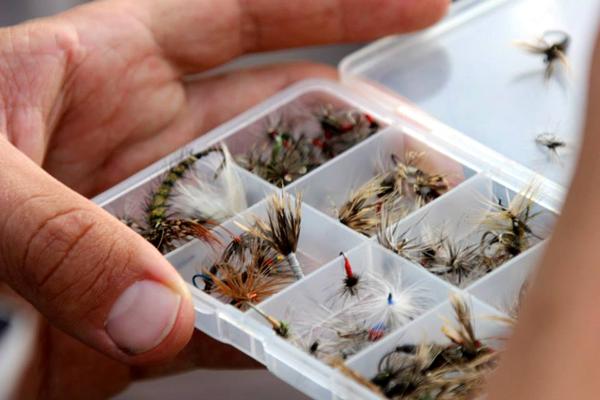by Madeline Sadler
Coral are a series of tiny polyps that one night a year are “releasing all the eggs they’ve made that year into the water column, packaged into bundles with sperm cells” (Marhaver, 2015). These tiny bundles keep dividing as they grow older and when they are a mere two days old decide where they want to develop for the rest of their life. From there they grow to form into the beings they are today. Since the global warming crisis, things for the coral haven’t been easy. The ocean is changing, and the corals are dying. With warming and rising waters, the corals are not safe anymore, and neither are the things they benefit.
Coral reefs are dying because of many reasons. “High coral mortality has been associated with natural events such as hurricanes, predator outbreaks and periods of high temperature, but has also resulted from excess nutrients in sewage and from specific pollutants” (Sebens, 2015). Out of all of these, there are two that cause major concern — the first being coral bleaching. Coral bleaching is when coral is exposed to prolonged amounts of sun and heat which cause them to become stressed. Under this stress, they expel the algae within their skin which causes them to turn white. While they may not die after they undergo a bleaching event, their likelihood of living is slim. “From 1876-1979 only three bleaching events were recorded, whereas 60 are on record from 1980 until 1993; in 2002 more than 400 events were recorded” (“Fast facts: why coral reefs are important to people,” n.d.). In one certain case after 1993, “Events as severe as the 1998 event, the worst on record, are likely to become commonplace within 20 years” (Guldberg, 1999). The 1998 event was awful for coral and “As a result, extensive bleaching occurred on nearly all coral reefs, followed by as much as 90% coral mortality at some localities” (Garpe, Yahya, Lindahl & Ohman, 2006). The fact that this could become a common event in the near future is mind-boggling.
Temperatures are on the rise “many tropical regions have increased by almost 1°C over the past 100 years and are currently increasing at ~1–2°C per century” (Guldberg, 1999). This rise in temperature will cause detrimental effects to coral reefs. “The world has lost roughly half its coral reefs in the last 30 years” (Becatoros, 2017). Not only this, but it is said that “Even if the world could halt global warming now, scientists still expect that more than 90 percent of corals will die by 2050″ (Becatoros, 2017). Imagine having your grandchildren not getting to know what a healthy coral reef looks like, if they even get to see one at all.
The other major factor playing into the death of coral reefs is ocean acidification. “Ocean acidification is sometimes called ‘climate change’s equally evil twin’” (Bennett, n.d). Ocean acidification is when an excessive amount of carbon dioxide is being absorbed into the ocean causing a raise in ph balance. It has been made very apparent that carbon dioxide emissions have been increasing significantly over these past years, but we are to a point now where our oceans are taking a toll. “Since the beginning of the industrial era, the ocean has absorbed some 525 billion tons of CO2 from the atmosphere, presently around 22 million tons per day” (Bennett, n.d). To put that into perspective 525 billion tons of CO2 is the equivalent to a 9.5-mile-thick blanket covering the size of Connecticut which is 5,500 square miles (Chiodo, 2012). With this thick blanket of CO2 within our oceans, it is wreaking havoc on the ecosystems within it. “CO2 influences the physiology of marine organisms as well through acid-base imbalance and reduced oxygen transport capacity” (Fabry, 2008). This means that it could affect certain animals’ ability to create their own skeletal structure, affect food web dynamics, and other processes that are very vital to an ecosystem, “the oceanic uptake of anthropogenic CO2 and the concomitant changes in seawater chemistry have adverse consequences for many calcifying organisms” (Fabry, 2008). These consequences are super detrimental to coral reef ecology.
So, one might be thinking why should we care about these issues? Coral reefs are very important. They house thousands of species and are important in many different ways. They are used in fishing, tourism, and keep the coasts from eroding. In fact, “Many of the compounds now being used in human medicines, including some that treat cancer, are found on coral reefs, with probably many more yet to be discovered” (“Why care about reefs? | Coral Reef Alliance”, n.d.). Imagine not being able to cure some kind of disease, because we don’t have the resources too since all coral reefs have died off. Not only do they help with medicine but they also “pump more than $3.4 billion into the U.S. economy,” (“NOAA’s Coral Reef Conservation Program (CRCP) – Video : The coral reef economy”, n.d.) and that is a conservative estimate. In other places, coral reefs are pumping lots of money into their economies. “The total economic value of Indonesia ‘s reefs is estimated at US$1.6 billion annually,” (“Fast facts: why coral reefs are important to people”, n.d.) and “The total economic value of Philippine reefs is estimated at US$1.1 billion annually” (“Fast facts: why coral reefs are important to people”, n.d.). Not only does this affect that county’s tourism industry but also “More than 450 million people live within 60 kilometers of coral reefs, with the majority directly or indirectly deriving food and income from them” (“Fast facts: why coral reefs are important to people”, n.d.). Coral reefs are also very important regarding the fishing industry. “Properly managed coral reefs can yield an average of 15 tonnes of fish and other seafood per square kilometre each year” (“Fast facts: why coral reefs are important to people”, n.d.). In southeast Asia, coral reef fisheries are very successful in getting revenue for their economy. Their fisheries alone are “estimated to yield US$ 2.4 billion annually” (“Fast facts: why coral reefs are important to people”, n.d.). Also, in the US alone several million people live near or around coastal areas “the well-being of their communities and economies is directly dependent on the health of nearby coral reefs” (“Fast facts: why coral reefs are important to people”, n.d.). In some cases, they even protect hotels or resorts that are vital to that country’s tourism industry.
With all this revenue that these coral reefs are providing they sometimes get taken advantage of. “More than 80% of the world’s shallow reefs are severely over-fished” (“Fast facts: why coral reefs are important to people”, n.d.). Also, “58% of the world’s coral reefs are potentially threatened by human activity” (“Fast facts: why coral reefs are important to people”, n.d.). Human activity and harsh fishing practices can be just as detrimental to a coral reef’s health than ocean acidification or coral bleaching. “Counting only the economic value of fisheries, tourism, and shoreline protection, the costs of destroying 1km of coral reef ranges between US$137,000-1,200,000 over a 25-year period” (“Fast facts: why coral reefs are important to people”, n.d.). That is a lot of money that could be leaving certain countries that might be heavily relying on coral reefs for a majority of the money circulating in their economy. It is very vital that humans understand what is at stake when they ignore the issues of coral reefs dying. This issue is completely in our hands to take care of. “The health of coral reefs depends on sustainable human uses that promote economic development while protecting sensitive coral ecosystems and the creatures that reside there” (“NOAA 200th: Why are coral reefs so important?”, 2017).
Some conservationists hate the phrases or pleas that we should save coral reefs whether they see it on social media being spread around or in conservation magazines.
“That phrase bothers me, because we as conservationists have been sounding the alarms about the death of coral reefs for decades. And yet, almost everyone I meet, no matter how educated, is not sure what a coral is or where they come from. How would we get someone to care about the world’s coral reefs when it’s an abstract thing they can barely understand?” (Marhaver, 2015)
Activism on this issue is so incredibly important in making sure that people are aware of what these fascinating creatures are, what has been happening, and what we can do to save the ocean’s coral reefs from completely dying off because of global warming or human activity.
There are all kinds of small things that we can do as conscious citizens on this Earth. The first and easiest being, educate yourself about coral reefs and its creatures. This will allow you to help others to understand them and their fragility with global warming. Don’t give coral as presents to people. You are striping them from their natural habitat that they spent decades growing on. Long lasting light bulbs help to reduce greenhouse gas emissions and reducing your carbon footprint will help significantly in order to help combat the climate change killing these coral reefs. Try to reduce the amount of water you use, even if it’s just by shortening your shower by five minutes. This can help to reduce runoff and wastewater that will inevitably end up in our oceans. Don’t send chemicals into our waterways. Excessive use of fertilizer or other chemicals increase algae growth and block sunlight for corals. Practice safe boating. Anchor away from coral reefs, and make sure your chain doesn’t drag and hit them either. If you go diving, do not touch the coral. They are living creature and touching them can cause sediments to get stirred up and smother them. Be a conscious consumer and know where you seafood is coming from. Make sure that they are being harvested in a safe, ethical way that isn’t damaging to coral reefs or the water around it. Volunteer at your local beaches or local watershed or, in addition to you picking up your own trash, pick up other trash that you see. There is even a hashtag on social media creating a movement in ocean clean up called “threeforthesea” where every time you go to the beach you pick up three pieces of trash. There are organizations aiding in coral reef and beach cleanup, one in specific called 4Ocean. This company makes recycled bracelets from plastic waste, and with each bracelet you buy they clean up four pounds of trash in the sea along with the large cleanups they have in communities all around the world.
There are also large-scale things that conservationists are working on right now in order to help regenerate coral reefs. In Curaçao, they are working on regenerating coral and have been working on this project for the past ten years. They gathered samples of different chemicals that they thought might be what causes coral reefs to attach and grow in the ocean.
“I tried those one by one by one, looking for the bacteria that would convince corals to settle and attach. And we now have many bacterial strains in our freezer that will reliably cause corals to go through that settlement and attachment process. So as we speak, my colleagues in Curaçao are testing those bacteria to see if they’ll help us raise more coral settlers in the lab, and to see if those coral settlers will survive better when we put them back underwater” (Marhaver, 2015).
This means that they have found what attracts coral to the spots they grow in and they are now able to place these certain chemicals in areas that coral needs to be regenerated. This is just one of the many exciting projects that is going on around the world to restore growth for coral reefs.
Now it is up to us to save these coral reefs. There are so many small things that we can do to help the coral reefs we know and love. A large consensus of people can agree that they don’t want coral reefs to be gone forever. Our time is now to help save these beautiful and mysterious creatures form global warming and human activities. They are so incredibly important in so many ways, so what are you going to do to help them?
References:
Becatoros, E. (2017). More than 90 percent of coral reefs will die out by 2050. Retrieved from https://www.independent.co.uk/environment/environment-90-percent-coral-reefs-die-2050-climate-change-bleaching-pollution-a7626911.html
Bennett, J. Ocean acidification. Retrieved from https://ocean.si.edu/ocean-life/invertebrates/ocean-acidification
Chiodo, J. (2012). What does a ton of CO2 look like?. Retrieved from https://buildingenergy.cx-associates.com/2012/06/what-does-a-ton-of-co2-look-like/
Fast facts: why coral reefs are important to people. Retrieved from http://wwf.panda.org/our_work/oceans/coasts/coral_reefs/coral_facts/
Garpe, K., Yahya, S., Lindahl, U., & Ohman, M. (2006). Long-term effects of the 1998 coral bleaching event on reef fish assemblages [Ebook] (p. 237). Retrieved from http://www.reefresilience.org/wp-content/uploads/Garpe-et-al.-Long-term-effects-of-the-1998-coral-bleaching-event-on-reef-fish-assemblages.pdf
Hoegh-Guldberg Ove (1999) Climate change, coral bleaching and the future of the world’s coral reefs. Marine and Freshwater Research 50, 839-866. Retrieved from
https://doi.org/10.1071/MF99078
Kennth P. Sebens; Biodiversity of coral reefs: What are we losing and why?, Integrative and Comparative Biology, Volume 34, Issue 1, 1 February 1994, Pages 115–133. Retrieved from https://doi.org/10.1093/icb/34.1.115
Marhaver, K. (2015). How we’re growing baby coral to rebuild reefs [Video]. Retrieved from https://www.ted.com/talks/kristen_marhaver_how_we_re_growing_baby_corals_to_rebuild_reefs
NOAA 200th: Why are coral reefs so important?. (2017). Retrieved from https://celebrating200years.noaa.gov/foundations/coral/side.html
NOAA’s Coral Reef Conservation Program (CRCP) – Video : The coral reef economy. Retrieved from https://coralreef.noaa.gov/gallery/cr_economy.html
NOAA. What can I do to protect coral reefs? [Image]. Retrieved from https://oceanservice.noaa.gov/facts/thingsyoucando.html
Victoria J. Fabry, Brad A. Seibel, Richard A. Feely, James C. Orr; Impacts of ocean acidification on marine fauna and ecosystem processes, ICES Journal of Marine Science, Volume 65, Issue 3, 1 April 2008, Pages 414–432, https://doi.org/10.1093/icesjms/fsn048
Why care about reefs? | Coral Reef Alliance. Retrieved from https://coral.org/coral-reefs-101/why-care-about-reefs/






One Comment
Julia
To be frank, I was one of those individuals that knew we needed to work on helping the coral reef’s. However i did not look into depth like you have shown me in this essay. This read was a refreshing new perspective and I learned many new things. For example i was not aware on how a humans touch could affect a coral reef. I appreciate the back to back facts you presented, I can not wait to read more into this topic.